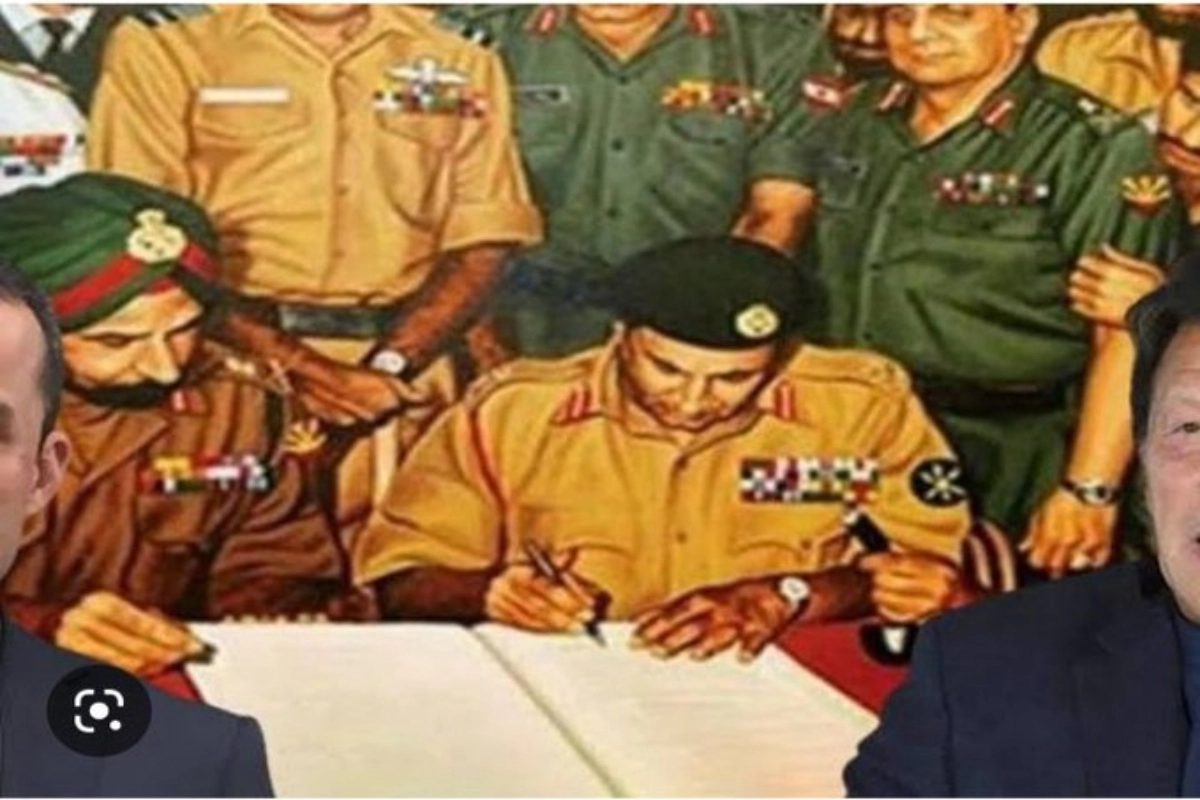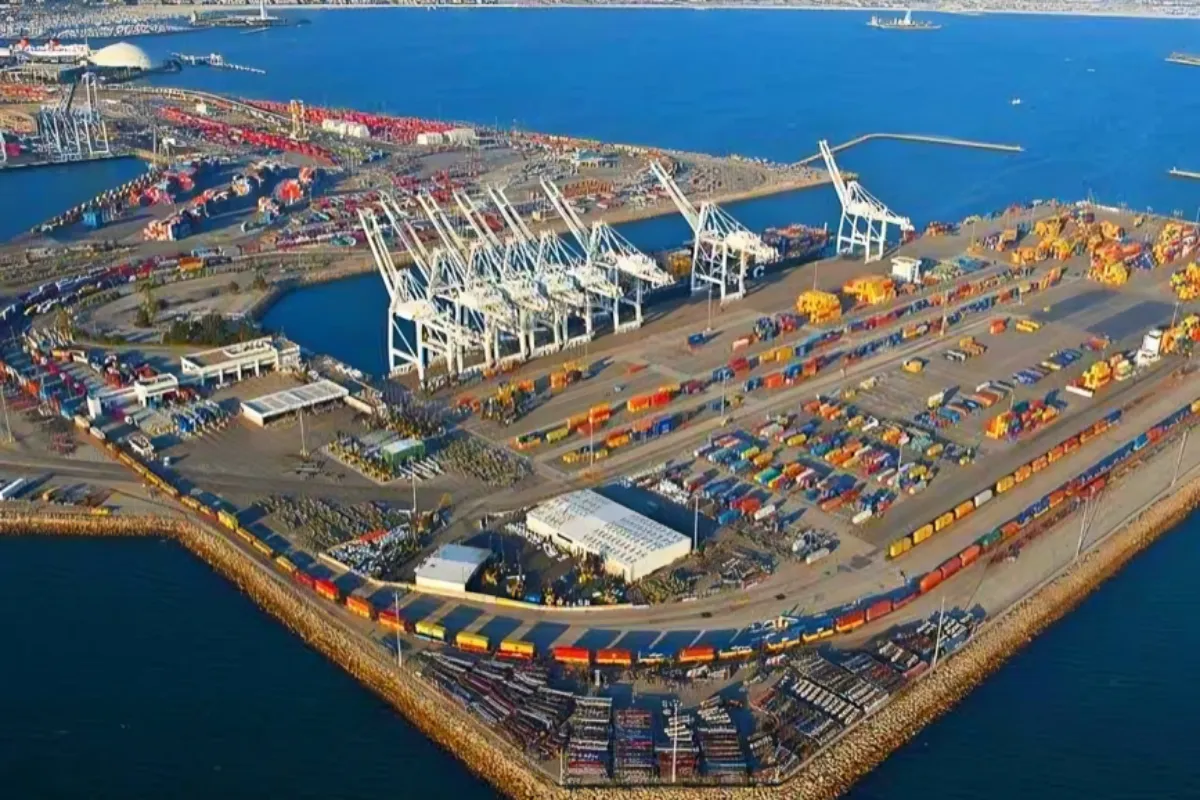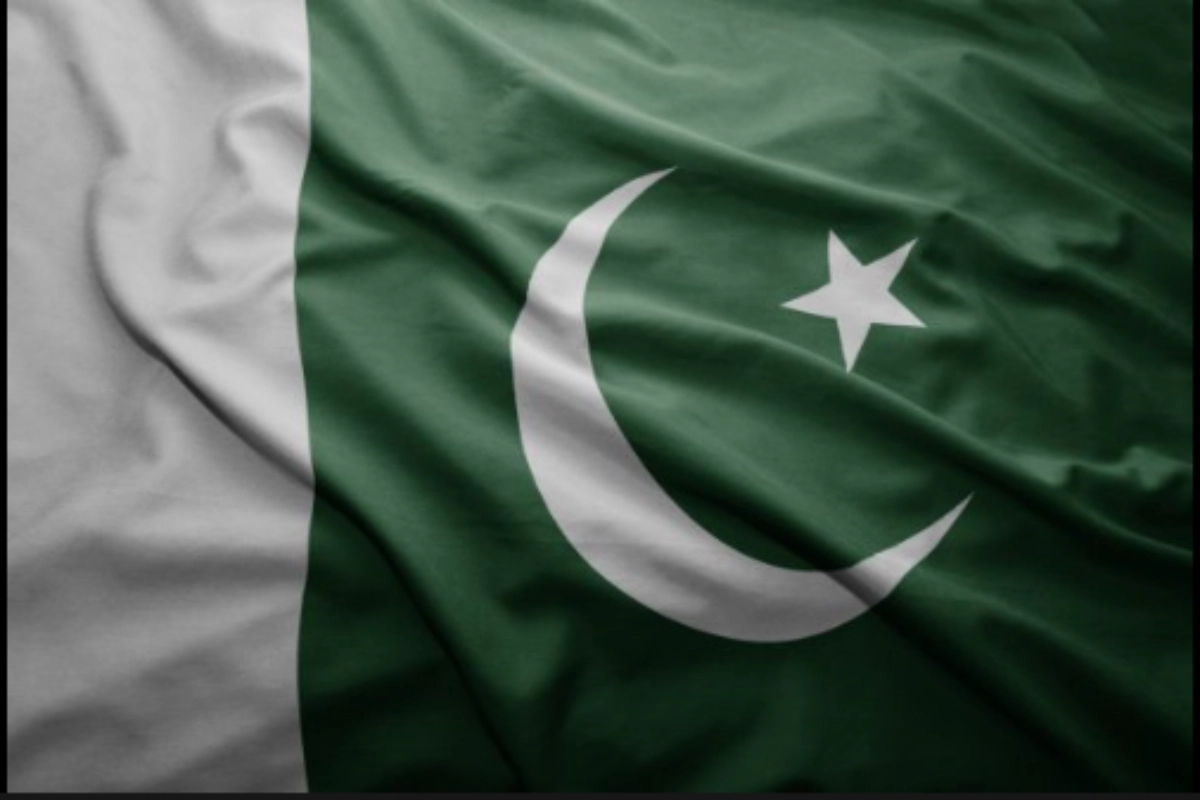Taliban is becoming the ‘Swords of Damocles’ on the head of Pakistan. Taliban is now threatening Pakistan’s sovereignty by forming a parallel government in Pakistan. The Taliban, who are ruling Afghanistan, now focus on Pakistan. They are trying to take Pakistan under their control. It is raging in Pakistan by the TTP, which is close to the Afghan Taliban. A parallel government has been established in North Pakistan to contend with Prime Minister Shehbaz’s government. Not only the government but also the cabinet was formed by the Tehreek-e-Taliban group. The ruling class and the army went on the defensive as these developments challenged Pakistan’s sovereignty. The establishment in Pakistan is now utterly confused as to how to deal with the demon that it bred and cultivated once, intended for using them against India, as and when required.
Tensions have been brewing between Islamabad and Kabul in recent times. While Pakistan has made sincere efforts to make congenial relations amid the growing rift, reopening a key border crossing at Spin Boldak-Chaman closed following cross-border gunfire that killed a Pakistani security guard on Nov. 13 and sending its minister of state for foreign affairs on an official visit to the Afghan capital at the end of November, there are clear signs that Pakistan’s leverage with the Afghan Taliban seems to be slipping fast.
TTP threatens Pakistan, citing the 1971 war with India
Quite often the Taliban have mocked Pakistan for meekly surrendering to India in the 1971 Indo-Pak war in which 93000 Pakistan soldiers were taken captive by India a record count in the 20th century. In a recent outburst, the Pakistani Taliban (TTP) has dared to fragment Pakistan to pieces, while reminding them of what India did by liberating Bangladesh.
Fundamental issues for growing tensions
Clashes along the disputed Afghanistan-Pakistan border have been a chronic problem. Since the Taliban took over Afghanistan in August 2021, the frequency of such clashes has only increased. Pakistan has however tried its best to deemphasize the border clashes, calling for a diplomatic resolution to the problem, but the issue of unrest in Pakistan’s Pashtun belt has become too big to repudiate.
The recent clash on Nov 19 between Taliban soldiers and Pakistani border guards near Dand Patan in the Afghan province of Paktia has worsened the relations further. Pakistan’s Federal Minister claimed through a tweet that Kabul’s Taliban regime has violated human rights by targeting the civilians of Pakistan’s Kurram border at Kharlachi and Borki and such actions are highly condemnable.”
The bone of contention – Taliban rubbishes Durand Line
In fact, the area where the clash took place is the actual ‘bone of contention’ between the two warring groups. Afghanistan does not recognise the ‘Durand Line’ as their international border with Pakistan and has refused to accept those areas under Pakistan’s control as Islamabad’s integral part. The underlying tensions, undermining trust and provoking enmity may aggravate in future.
Moreover, the new Afghan interim government is grappling with numerous governance challenges in terms of international recognition, humanitarian aid, basic healthcare, women’s education, and infrastructure development, as well as countering the terrorism threat from ISIS-Khorasan Province (ISKP).
Islamist and Jihadi forces are now invoking radical Islamism more in Pakistan
The Afghan Taliban’s military victory in Afghanistan has had an inspirational effect on those who seek to impose ‘Sharia law’ in Pakistan. The Pakistani state has ample reason to be concerned about blowback from the Afghan Taliban across the Durand Line. Pakistan’s practice of supporting jihadist forces is now coming back to haunt it by stirring up religious fervour among a large section of its own population. The ideological connection that has helped Pakistan control the Taliban in Afghanistan has also paved the way for growing Islamist radicalization in Pakistan itself. Islamist and Jihadist forces are now invoking Islam not so much in opposition to India, as they have traditionally done, but more to pressure the Pakistani government to assert the country’s Islamic character.
Pakistan losing Taliban to India – Changing sides
The ISI together with the Pakistani Military establishment has groomed the Taliban to be a valuable strategic asset for its anti-India malicious prerogatives. But now that they are the rulers of Afghanistan, the Afghan Taliban gain little from keeping India at bay, especially as the latter can provide much-needed financial support for reconstruction and development. In other words, India-Taliban relations are, if not improving, at least becoming less overtly hostile in terms of both rhetoric and action. While Pakistan should have been the major beneficiary of a Taliban-led regime in Kabul, the imprudent rulers in Islamabad might have forgotten that the Taliban were brought to the negotiating table by regional powers including Russia, China, and Qatar as well.
We will not listen to Pakistan anymore – Taliban
The Taliban are now sending apparent signals of their defiance against Pakistani dictats. Pakistan’s unpopularity in Afghanistan has made the Taliban cautious about avoiding being seen as Islamabad’s puppet. Afghanistan’s loss in a cricket match held in September 2022 exposed deep-rooted animosity between the people of the two nations, leading to ugly scenes on the ground as disappointed Afghan fans threw plastic chairs at their Pakistani counterparts, as well as heated quarrels on social media. Pakistani supporters termed the whole Afghan nation as namak haram (“traitor”), implying that Afghans living in Pakistan for decades as refugees are thankless and ungrateful, while many Afghans countered by lambasting all Pakistanis as “terrorists.”
What is ‘Pashtun Ethnic Nationalism’?
In fact, a very significant issue – ‘Pashtun Ethnic Nationalism’ has been largely overlooked. The Taliban movements in both Afghanistan and Pakistan have some roots in ‘Pashtun’ nationalism that have been obliterated from the minds of all and an injudicious attempt to hook up the Afghan Taliban’s success with reference to ‘Islamist Extremism’ rather than ethnicity has been made.
The ‘Pashtun Nationalism’ is a persistent pain for Islamabad and it also threatens the sovereignty of the country. Pakistan has found it more congenial to portray the ‘Islamic Factor’ in the Taliban’s accession of Afghanistan, absolutely concealing the ‘Pashtun Nationalism’ issue – that might fragment it further.
However, the Taliban movement has used both of these identities to advance its aims depending on the situation.
What are these Pakistani Taliban and how different from Afghani Taliban?
Buoyed up by the Afghan Taliban’s rise to power, the Pakistani Taliban, or Tehrik-e Taliban Pakistan (TTP), have declared the former as their role model and launched an escalating terror campaign inside Pakistan from its base in North Waziristan. On Nov. 28, the group ended its five-month-long ceasefire with the government, and on Nov. 30 a suicide bomber from the TTP blew himself up near a police truck in the restive Balochistan Province, killing at least three and injuring 28 others, including 20 security personnel. Claiming responsibility for the attack, the TTP justified it as retaliation for the killing of one of its senior commanders, Abdul Wali, also known as Omar Khalid Khorasani, in Afghanistan in August.
Indeed, the alliance between the Afghan and Pakistani Taliban has grown stronger than ever and there are signs of integration across the Durand Line. Not ready to accept Pakistan’s border-fencing activities, which are viewed as “one-sided,” “illegitimate,” and an attempt to change the status quo ante, the Pakistan and Afghan Taliban fighters are reportedly removing the barbed-wire fence at many places along the Durand Line.
The end of ceasefire by TTP means more lethal attacks on Pakistan
Now that the TTP has officially ended its ceasefire, it is expected to carry out more deadly attacks in areas where it has strong footholds. The end of the controversial ceasefire also comes at a time of transition for Pakistan’s military, with Gen. Asim Munir Ahmed succeeding Gen. Qamar Javed Bajwa as Army chief of staff. It remains to be seen what Munir’s policy will be regarding peace talks with the TTP.
~ Taliban forces were once raised and trained by Pakistan’s ISI ~
Following the upsurge in Islamist militancy in tribal areas, Pakistan’s security forces are facing direct attacks from the TTP, leading the government to complain about terrorist safe havens in Afghanistan. According to one Pakistani think-tank, the county has seen a 50% spike in terrorist attacks since the Taliban returned to power in Afghanistan, underlining the fast-deteriorating security situation. Pakistan’s borderlands are witnessing an alarming increase in the number of extortions, kidnappings for ransom, and other forms of racketeering. Wealthy residents and local lawmakers alike are being blackmailed to pay extortion money to the TTP, which enjoys freedom of action in Afghanistan. There has been a significant rise in the TTP’s extortion activities in Karachi in the past few months.
~ Taliban which was raised by ISI to bleed India is now bleeding Pakistan ~
While the Pakistani leadership was confident that the Afghan Taliban would help it to control the TTP, the latter have not acted against their ideological counterparts in Pakistan. And now Pakistan has started crying on international platforms to save it from the wolves it reared to bleed neighbours (India) with thousand cuts.
In his address to the United Nations General Assembly in September 2022, Pakistan’s Prime Minister, Shehbaz Sharif, pleaded to the international community that “the threat posed by the major terrorist groups operating from Afghanistan, especially Islamic State, ISIL-K and TTP, as well as al-Qaeda, ETIM, and IMU, are of global concern and should be mitigated with global efforts. Pakistan’s Foreign Minister, Bilawal Bhutto Zardari, also reiterated Shehbaz’s words recently when he fervently pleaded for international calls for the Taliban to demonstrate practical progress in preventing global terrorist groups from threatening Pakistan from their Afghan sanctuaries.
~The country that once bred and provided safe sanctuaries to global terrorists, is now imploring global powers to save it from them~
Also Read: Pariksha Pe Charcha 2023: Hold your knots tight to meet PM Modi on Jan 27
Keep watching our YouTube Channel ‘DNP INDIA’. Also, please subscribe and follow us on FACEBOOK, INSTAGRAM, and TWITTER












